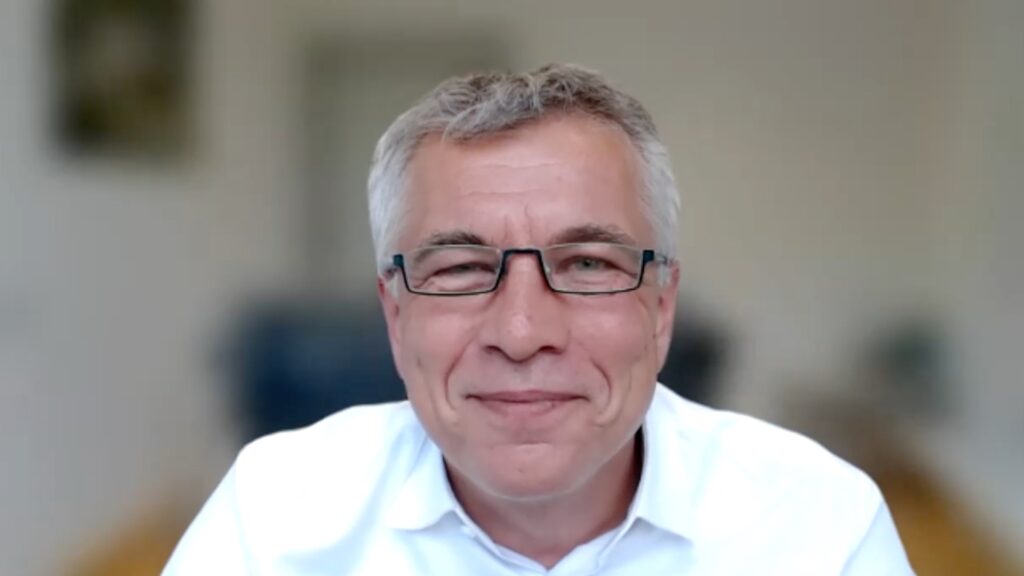Professor Luis FC Ensina is a distinguished allergologist, renowned for his work in urticaria, drug allergies and angioedema. As a Professor of the Division of Allergy, Clinical Immunology and Rheumatology at the Federal University of São Paulo, Brazil and coordinator of its urticaria, angioedema, drug allergy and mast cell diseases outpatient clinic, he has made significant contributions to clinical care, research and education.
 Professor Ensina leads Alergoalpha/CPAlpha, a private allergy clinic and clinical research unit which is a Center of Excellence for Urticaria (UCARE), Angioedema (ACARE), and Atopic Dermatitis (ADCARE). At Alergoalpha, he has supervised and participated in over 20 phase iii/iv clinical trials in asthma, rhinitis, urticaria and atopic dermatitis. He has authored/co-authored more than 100 peer-reviewed publications and contributed to over 15 books and book chapters, further advancing the field globally.
Professor Ensina leads Alergoalpha/CPAlpha, a private allergy clinic and clinical research unit which is a Center of Excellence for Urticaria (UCARE), Angioedema (ACARE), and Atopic Dermatitis (ADCARE). At Alergoalpha, he has supervised and participated in over 20 phase iii/iv clinical trials in asthma, rhinitis, urticaria and atopic dermatitis. He has authored/co-authored more than 100 peer-reviewed publications and contributed to over 15 books and book chapters, further advancing the field globally.
As the founder of the Brazilian Urticaria Network (RUBRA) and an active member of international organizations such as the Global Allergy and Asthma Excellence Network (GA2LEN), American Academy of Allergy, Asthma, and Immunology (AAAAI), European Academy of Allergy and Clinical Immunology (EAACI) and the Latin-American Society of Allergy and Immunology (SLAAI), Professor Ensina continues to drive innovation and shape the future of allergy and immunology worldwide.
In this expert Q&A, Professor Ensina reflects on the pivotal moments of his career in allergy and immunology, from pioneering clinical trials to founding the Brazilian Urticaria Network (RUBRA). He shares insights into the challenges and rewards of leadership, the impact of global collaboration, and the innovations poised to redefine the future of patient care.
Q. What led you to pursue a career in allergy and immunology, and in particular urticaria, drug allergies and angioedema?
During medical school, I had the privilege of learning from exceptional clinicians who could diagnose without relying on lab tests. Inspired by their approach, I developed a deep appreciation for internal medicine and honed my clinical reasoning. Allergy became the ideal specialty to apply these skills. During my residency and fellowship, I was often assigned complex cases, many involving urticaria and drug allergies, further solidifying my passion.
Q. How did you get involved in clinical trials, and what have been the biggest challenges and rewards from participating in them?
My initial goal in attending medical school was to become a researcher. However, my training emphasized clinical practice, so that dream had to be temporarily set aside. After my fellowship, I participated in a basic immunology project, which, while fascinating, made me realize my true place was at the bedside, not the bench. Clinical trials became a way to bridge my love for research and clinical practice.
The biggest challenge is recruiting and retaining suitable patients, especially when treatments don’t meet expectations. However, being part of groundbreaking therapies that could transform lives is incredibly rewarding.
Q. As a coordinator of a major university outpatient clinic and the head of a private clinical research centre, how do you manage these diverse responsibilities?
Managing these responsibilities is part of a broader commitment to creating a better world. When driven by a higher purpose, even the most demanding tasks become more manageable and fulfilling.
Q. What inspired you to establish the Brazilian Urticaria Network (RUBRA), and what have been its most significant achievements?
RUBRA was inspired by UCARE, GA2LEN’s Urticaria Centers of Reference and Excellence, as a way to bring their initiatives to Brazil. Since its inception, RUBRA has successfully delivered educational programs for both physicians and patients and completed three national projects, resulting in two publications.
Q. As a co-author of the international urticaria guidelines, what was it like to shape global standards for care, and how do you think these guidelines have transformed clinical practice worldwide?
Co-authoring the international urticaria guidelines involved collaboration with colleagues dedicated to advancing urticaria care. The document provides clear, evidence-based recommendations, making it an invaluable resource for physicians globally and significantly improving patient management.
Q. How has being part of international organizations like AAAAI and EAACI influenced your work in Brazil and your perspective on allergy and immunology worldwide?
Collaboration is fundamental to progress. While Brazil has a strong network, engaging with international organizations has expanded my perspective and introduced new ideas. Global collaboration not only strengthens research by pooling diverse data, but also fosters friendships worldwide, which are among the most fulfilling aspects of my work.
Q. What emerging trends in allergy and immunology should we be paying close attention to in the near future?
Immunobiologics and small molecules are transforming the treatment landscape for severe allergies, offering new hope to many patients. Gene therapy holds promise but remains in its early stages. AI (artificial intelligence) is already reshaping clinical practice and will undoubtedly introduce powerful tools to further enhance patient care.
More content in the field of Allergic Conditions, Urticaria and Immunology
***
SIGN UP to TouchIMMUNOLOGY!
Join our global community today for access to thousands of peer-reviewed articles, expert insights, and learn-on-the-go education across 150+ specialties, plus concise email updates and newsletters so you never miss out.
REGISTER >>>

***
Editor: Gina Furnival, Senior Editorial Director
Support: No funding was received in the publication of this short article.
Cite: Ensina LF. Global Impact, Brazilian Roots: Prof. Ensina’s journey leading innovation in allergy and immunology. touchIMMUNOLOGY. January 9, 2025.


